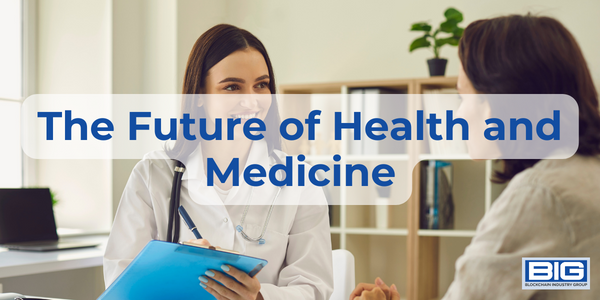
Over the next decades, the health and medicine industry is likely to be greatly impacted and progressed by the convergence of various emerging technologies. Here are some of the most impactful ways that this transformation is likely to occur:
- Personalized medicine. The use of artificial intelligence, genomics, and other technologies is expected to enable the development of personalized medical treatment plans that are tailored to an individual’s unique genetic makeup and health history. This could lead to more targeted and effective treatments for a wide range of conditions.
- Telemedicine. Advances in communication technologies, such as virtual reality and wearable devices, are expected to enable widespread adoption of telemedicine, allowing patients to access medical care remotely and in real-time. This could improve access to healthcare for underserved populations and reduce the burden on hospitals and clinics.
- Robotics and automation. The use of robotics and automation in the health and medicine industry is expected to increase, enabling tasks to be performed more efficiently and accurately. This could include the use of robots to assist with surgeries and other procedures, as well as the automation of tasks such as medication distribution and patient monitoring.
- Gene editing and therapies. The development of gene editing technologies, such as CRISPR, is expected to enable the treatment of a wide range of genetic conditions and diseases. This could include the development of therapies that target specific genes or that introduce new genes into cells to correct defects.
- 3D printing. The use of 3D printing in the health and medicine industry is expected to revolutionize the way that medical devices and implants are designed and produced. 3D printing allows for the creation of customized, complex structures that may not be possible using traditional manufacturing methods. This could lead to the development of personalized prosthetics and implants that are more closely matched to an individual’s specific needs.
- Augmented and virtual reality. Augmented and virtual reality technologies are expected to have a significant impact on the health and medicine industry, enabling a wide range of applications such as training and education, patient rehabilitation, and surgical simulations. These technologies could also be used to enhance the patient experience, for example by providing immersive relaxation experiences during procedures.
- Wearable and implantable devices. The development of wearable and implantable devices, such as fitness trackers and smart watches, is expected to enable the continuous monitoring of an individual’s health and the early detection of potential health issues. These devices could also be used to deliver targeted therapies or to monitor the effectiveness of treatment.
Recruitment and the Promise of Future Technologies
—
Retail and the Promise of Future Technology
—
Robotic Consciousness: Possibilities and Risks
There are several ways that healthcare and medicine are not expected to be transformed by future technologies. One area that is unlikely to be impacted significantly is the overall structure and organization of the healthcare system. While technologies such as telemedicine may enable patients to access care remotely, the fundamental structure of the healthcare system is unlikely to change significantly. Another area that is not expected to be greatly impacted is the role of healthcare providers. While technologies such as automation may enable some tasks to be performed more efficiently, the overall role of healthcare providers is not expected to change significantly. Finally, the use of technologies such as gene editing and therapies may not necessarily lead to widespread cure or treatment of all diseases. These technologies may only be effective for a limited range of conditions, and other diseases may continue to require more traditional forms of treatment.
Overall, though, the convergence of these and other emerging technologies is expected to greatly impact and progress the health and medicine industry in the coming decades. By leveraging these technologies, we can improve access to healthcare, enhance the patient experience, and enable the development of more targeted and effective treatments for a wide range of conditions.



